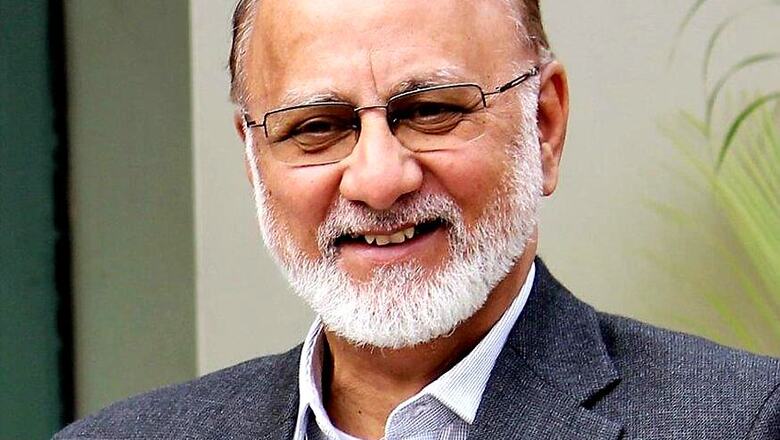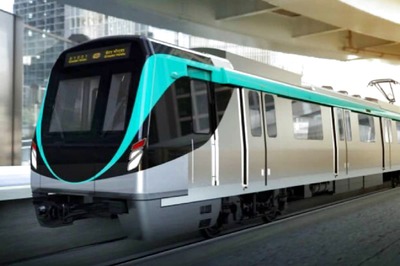
views
The Coronavirus pandemic has hit the global economy hard and analysts are saying that the slowdown due to the impact of COVID-19 will be worse than that of the 2008 financial crisis. The automobile industry, too, is struggling and is working towards reshaping their timelines and investments and trying to understand the impact that this pandemic will have on the industry as a whole. In order to understand that better, we got in touch with Sohinder Gill, CEO at Hero Electric and here’s what he had to say.
– What measures are being taken by Hero Electric for its employees, dealers and customers through the lockdown period?
This lockdown has not been easy on anyone. We are trying to keep ourselves and our employees engaged through weekly video calls with industry leaders who talk about what lies ahead, future and share interesting anecdotes, how they are spending their time in this period. Personally, I interact with all the employees over video calls and discuss important things, any hardships – if any – and what can be done to help them out. We also engage in interesting games and activities to keep the mind healthy. For the customers, we have already had an at-home service facility and still do. They can summon our service team for any problem they are facing. We recently introduced our online scheme which encourages people to buy online to avail cash discounts. We will deliver the vehicles to them as the lockdown is over thereby, keeping human contact minimum while also giving a push to clean mobility.
– How do you see the lockdown affecting the Indian automotive industry as a whole, and also for electric vehicle manufacturers?
It has already affected the industry tremendously. There is more to come for sure, but it is encouraging to see how we, as an industry, are contributing to the fight against the virus. I am sure we will come out of this sooner than later and when we do, the automotive space will definitely pick up. It will take time since everything is on hold right now and to get it back to normal will require lubrication to get the process back in place. For the EV manufacturers, they will be inclined to invest more in R&D to increase the localization levels on their products and reduce the reliance on importing crucial components.
– Do you see the Coronavirus lockdown acting as a catalyst towards changing the mindset of people towards electric vehicles?
Certainly. While the lockdown has taken a toll in our nation’s day to day function, the environment has quietly regained its health by quite a margin. The sky is bluer than ever, the air pure, the lakes cleaner and even the temperature came down. People are realizing that and would be more than willing to adopt eco-friendly transportation methods to sustain a clean environment. Nobody would like to breathe air that is toxic and that awareness is greater now than it ever has been. Hence, there is going to be more demand for EVs once the lockdown is lifted and the operations get back to normal.
– The sales number for the last financial year show that two-wheelers continue to dominate the EV sales in India. What do you think will be the next breakthrough that takes it to mass-market adoption?
Post the lockdown there is expected to be an increase in the demand of E2W, especially in the low-speed segment due to its affordability, ease of use and low maintenance. Interestingly, the environment has benefitted a lot from the lockdown; there is so much less pollution and people are realizing that and to maintain this progress the customers would be more willing to give EVs serious consideration. So, post-COVID there is likely to be more demand for E2W in the low-speed category which is what will lead the mass-market adoption in India. A major factor that may work in favour of electric two-wheelers post-COVID would also be the choice of switching over from crowded mass transport to the sensibly priced electric two-wheelers with almost the same cost of commuting as that of public transport.
– How soon do you expect the market to reach pre-Coronavirus demands?
Given how unstable and how erratic the situation the virus can make, putting a number is very complex. We must face it as we go forward. Having said that, by the end of 2020 is when we see the market being recuperated.
– What are your expectations from the government to help boost the electric vehicle sector demand in the coming future?
For each type of segment, there is a different set of requirements. We need to look at specific problems and then action or find a solution. Considering the pressure on government funds due to COVID, it may be prudent to go for indirect policy measures such as mandating businesses such as e-commerce, couriers etc that use polluting vehicles to switch to electric in a phased manner. Swachh Bharat campaign can be rejigged to include clean air and EVs as a significant contributor to clean air can do wonders in spreading awareness to masses. Financing of EVs is abysmally low and public sector banks can be told to undertake priority lending especially for the lower-income group customers. Most pertinent, however, from the mass-adoption point of view, would be a reallocation of the already budgeted funds under FAME 2 to include incentives/subsidies for low-speed E2Ws that are catering to a common man's commute.
Also Watch:



















Comments
0 comment